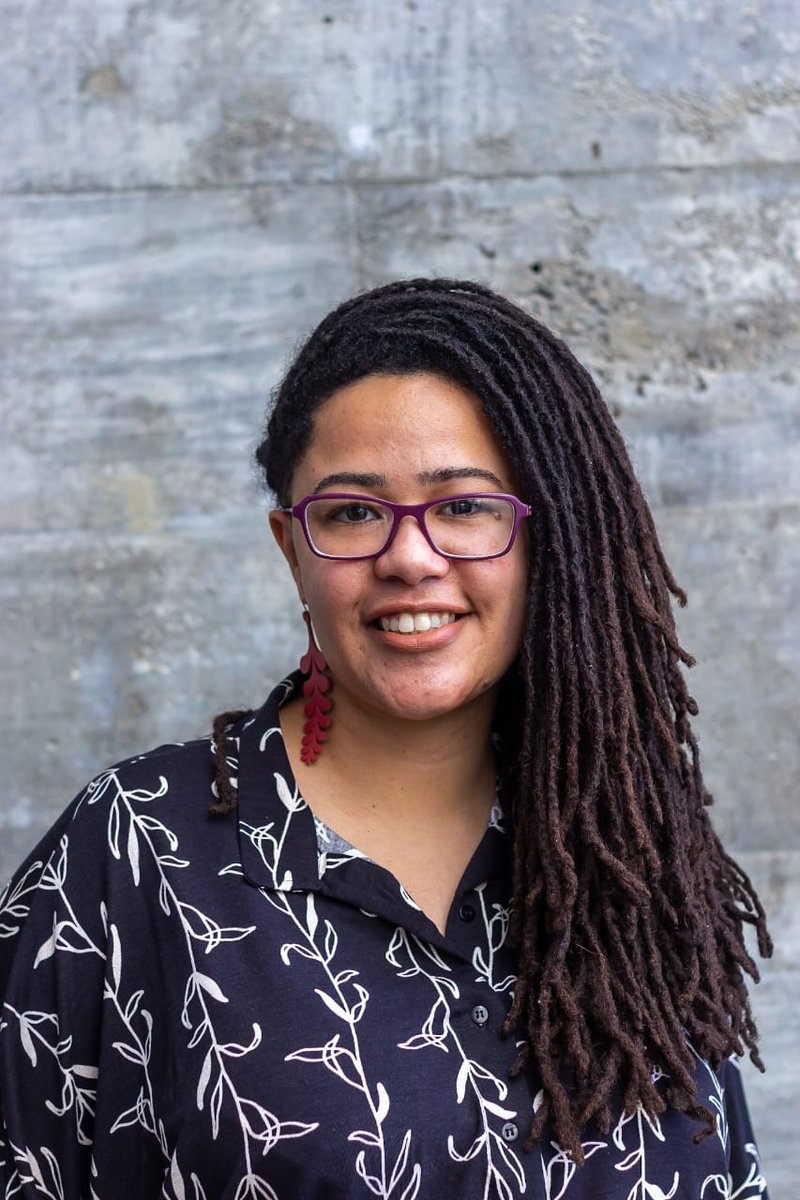Renata Sampaio

Conference Report. November 2023
The CIMAM Conference 2023 was the first major international event I have participated in, and for me, it was crucial to understand how certain discussions are being viewed and discussed globally. The topics addressed by CIMAM this year are intrinsically related to my work as the Manager of Education at the Modern Art Museum in Rio de Janeiro. Being able to listen to influential people on these subjects and engage in dialog with other participants about their practices in the field was very enriching. I return to my country with a head full of ideas and new questions that will nourish our program for the next few months.
The exchange among all the participants was beautiful, and the atmosphere at CIMAM was very welcoming. Everyone was eager to meet, exchange, and learn from each other. I felt motivated to share our projects at MAM-Rio and to hear about the projects of other colleagues as well. I could realistically assess the practices in my country and the museum where I work, using a broad and diverse perspective based on everything shared at the event. I met interesting people from all continents who significantly expanded my view of art and its social intersections, as well as the many possibilities for engagement in the field. Future conversations and meetings were planned, and some meetings have already taken place to develop partnerships in the future.
I would like to highlight the program of the last day, tailored to the personal interests indicated by each participant. It was very beneficial to be more intensively engaged with a group of people with similar interests, experiencing something a bit more profound and directed than the rest of the activities. This allowed us to explore more underground experiences in the city. Seeing projects focused on mental health and the homeless population prompted discussions about the social and political urgency that art cannot afford to overlook. The panel on art, solidarity, and politics, where we learned about some radical art practices in places that were or are at risk of losing freedom as a right, or even citizenship, had a significant impact on me. It made me think even more about the incredible tool that art can be in the struggle for rights.
Having had access to the cultural scene of Buenos Aires so comprehensively in such a short time was wonderful – although a bit tiring – something that would require many trips to the city to fully experience.
I leave CIMAM enchanted with the program, the city of Buenos Aires, and the sea of possibilities that unfolds after the event. I can only express my gratitude.
Bio
Renata Sampaio is a multidisciplinary artist, educator, and curator. She holds a Master's degree in Visual Arts from the Federal University of Pelotas and a Bachelor's degree in Performing Arts from the Federal University of the State of Rio de Janeiro.
With 17 years of experience in art education, Renata began her career as a teenager at the Teaching Assistance Service of the National Museum, a pioneering institution in Museum Education in Brazil. She has worked as an educator in various exhibitions and institutions throughout her career. Her notable experiences include serving as the coordinator of the educational program for the 11th and 12th editions of the Mercosul Biennial (Porto Alegre, Brazil) and as the educational coordinator for the 3rd edition of Frestas - Triennial of Arts (Sorocaba, Brazil). Currently, she is the Education and Engagement Manager at MAM Rio (Museum of Modern Art in Rio de Janeiro), where she is responsible for curating courses, organizing institutional residencies, and engaging with school communities.
Renata is interested in topics related to race, territory, and intimacy, and how these three elements inform art and education in Brazil. In 2019, she created the project "Corpo negro cubo branco: o jogo do educador na exposição decolonial" (Black Body White Cube: The Educator's Game in Decolonial Exhibition), a card game that reproduces episodes of racism she experienced or witnessed while working in the Education sector of art exhibitions. Several artistic and educational institutions have used the game as a tool for discussing racism and decoloniality in art. In 2021, along with researcher Mara Pereira, she organized the 18th issue of FLACSO (Latin American Faculty of Social Sciences) Journal, addressing the relationships between visual arts and education through categories of race, gender, social class, territory, and generation. In 2022, Renata mentored the Pemba program, a national research, exchange, and creation program in visual arts that brought together black artists, curators, critics, theorists, and educators to stimulate exchanges, experiments, and reflections on black Brazilian art production.
In 2017, Renata curated her first exhibition, "Estereotipação: mulheres negras performam" (Stereotyping: Black Women Perform), showcasing video performances by black Brazilian women artists questioning the way they have been portrayed throughout history and how they want to define themselves today. The exhibition has had several versions in Brazil, with the latest being held in April of this year during Renata's residency at Lugar a Dudas (Cali, Colombia), invited by La Escuela, an artist-run platform for radical learning and collective making in public spaces, invited her. In 2021, Renata was one of the curators of the Rio de Janeiro International Arts Festival, an online exhibition funded by the city and state government of Rio de Janeiro, featuring artworks exploring the relationships between art and isolation during the COVID-19 pandemic.